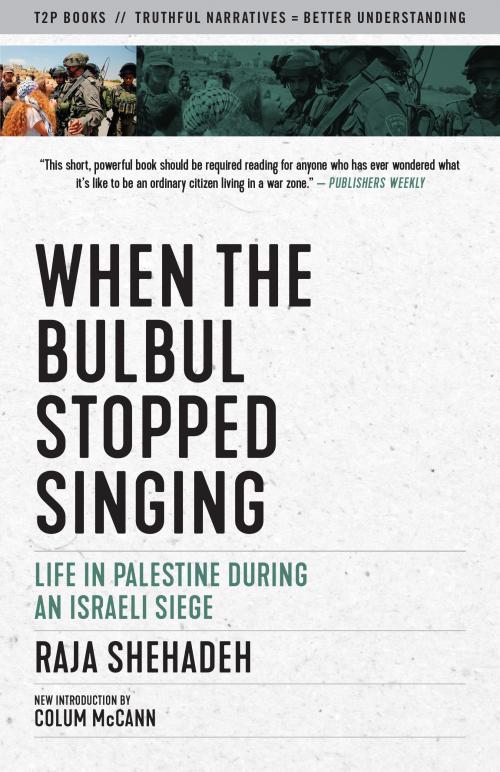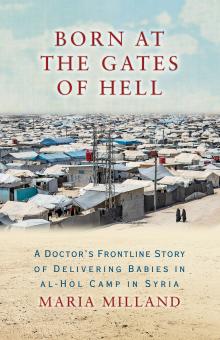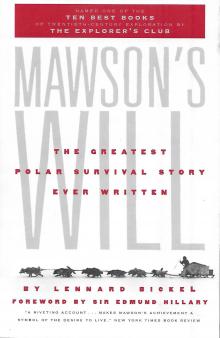Excerpt
New Introduction by Colum McCann
I Told You So, I Told You So, I Told You So
The word curfew is derived from the Old French couvre-few, meaning “to cover fire.” In Europe during the Middle Ages, a church bell would toll at a fixed hour — eight o’clock in winter, sunset in summertime — to instruct villagers to move indoors, bank their hearths, extinguish the flames, and prepare for sleep. It was, essentially, a practice designed to prevent the leap of potential fire from one house to another.
In around 1066, when William of Normandy — also known as William I, William the Conqueror, or, sometimes, William the Bastard — conquered England, he began to use the curfew as a practical way to get the Saxons off the streets. The subjugated Saxons became second-class citizens, and curfew was an essential part of the political chiaroscuro: Lights out; troublemakers inside. Darkness. Security. Control.
Since then curfew has been invoked just about everywhere, from the streets of Berlin, to the alleyways of Belfast, to the favelas of Brazil, to the boulevards of Paris, to the thoroughfares of Singapore, to the souks of Marrakech, to the docklands of Greece. It is mentioned in Shakespeare (The Tempest, Hamlet, King Lear) as a time when the spirits were relieved from their confinement and allowed, until the first cockcrow, to roam freely. The word now suggests a lockdown, a suppression of the undercurrent, a tamp-down of a larger tide.
Raja Shehadeh’s memoir, When the Bulbul Stopped Singing, begins under curfew in 2002. (The song of the bulbul reminds Shehadeh of the phrasing I told you so, I told you so, I told you so.) It is the time of the Second Intifada. While the First Intifada (1987–1993) had brought a cohesive sense of purpose to the Palestinian community, revolving around civil protest and largely symbolized by stone throwers standing up to a military heavyweight, the Second Intifada (2000–2005) was considered, especially in its wake, to have shattered those stones into a terrible bomb-dust.
Shehadeh’s book, which takes place in Ramallah over the course of a month, places us squarely in the middle of that glaucoma storm. He gazes out from his window, past the trees, beyond the hills, right into the territories of our own complicit hearts.
Shehadeh is a human rights activist, a lawyer, a hill-walker, a writer, a cultural icon, a man in pursuit of reality and justice. Born in 1951, he has resided all his life in houses that have overlooked the hills of Ramallah in the West Bank. A polite, provocative, piercing man, he now lives in a beautiful low house just off the Tireh Road, on the outskirts of the city: a small gate, a large ornate steel door, an entranceway of Damascus furniture, a window out to a courtyard, a lemon tree laden with yellow fruit. One can imagine the house once, looking out to the quiet hills, waiting for rain and an explosion of green shrubbery. At night, as a boy, Shehadeh could see Jaffa in the distance, and he pined for the house that his parents had been forced to leave in the war of ’48. He can still see the lights of Jerusalem and Jaffa from the nearby hilltops. (One must remember that Israel and Palestine together are not much bigger than Wales.)
The house has become more and more suburban in recent years, crowded in not just by Israelis’ settlements across the valley, but by flagrant and slipshod Palestinian construction too: nearby flyways and malls and empty hulks of apartments. Yet Shehadeh’s house maintains its sense of peace and calm. It comes across not just as an oasis but as a living piece of chamber music: step inside, take a breath, listen. It is here that Shehadeh invites us to stay during the month of April 2002, opening us to the terrible silence alongside the dream of symphony.
Shehadeh begins the book two days after a Palestinian suicide bomber blows himself up in Netanya, Israel, during Passover. Scores of Palestinians and Israelis have already been killed. He recognizes immediately the terrible moral toll the violence has taken on both sides. The city is in lockdown. The tanks are waiting in the streets. Bombs explode in the distance. Jets roar overhead. His wife, Penny, is away. His brother’s house is occupied by Israeli soldiers.
The reader can sense Shehadeh in the corridors, in slippers and open-neck shirt, going from room to room, alert to every noise. Fifty years old, he paces the length of the corridor for exercise. He tunes the radio to BBC News. He slips a CD into the player. When the lights go out, he reads by candlelight. He makes sure the windows are darkened. Snipers can be anywhere. In the daytime he listens for birdsong. Even the bulbuls seem silenced. He wants so much to go outside and walk in his beloved hills. Impossibility surrounds him. Everything is fraught with meaning. Should a knife be left on the counter? What reading material might agitate a soldier? Even the fertilizer meant for the roses in the garden could be misinterpreted. At one stage he breaks curfew by mistake, like a delayed April Fools’ joke.
Shehadeh doesn’t want our pity. Nor does he play for any easy admiration. He lives in a world governed by the exercise of power, not law. He writes because his world depends on it. He simply must do it. This is his resistance. (One is reminded of the Algerian journalist Tahar Djaout saying, If you speak, you die. If you keep quiet, you die. So speak and die.) He desires the dignity of being allowed to just tell his story. The writing is immediate: It is a diary, after all, and the reader can detect the current of anger underneath. This is not the world as anyone wanted it. He is under curfew. Occupied. Shackled. He declares his affinity for somoud, or the Palestinian idea of perseverance: he will go on no matter what, no matter, no matter what. Out of the silence: I told you so, I told you so, I told you so.
He writes quietly, but this quietness — this whispering intensity — is exactly the tone that shatters curfew. For a long time we in the West have been prone to receiving one-dimensional portraits of the Palestinian character — either subjugated victim or crazed terrorist — just as the Israelis are also often one-dimensionally drawn, hapless victim, cruel colonist, high-tech savior. But Shehadeh realizes that simplicities have the ability to reduce complex people to rubble. The truth is kaleidoscopic. It holds many other truths. The Palestinian people and the Israelis are just as diverse as anyone else. He himself is certainly no terrorist extraordinaire or pleading victim: this is a man sitting back under curfew and attempting to maintain sanity and preserve beauty in the face of all the evidence. At the same time, he wants to cut to the heart of contradiction: He, like his people, contains multitudes. He wishes to step, empathetically, into the shoes of others. “If only the Israelis would ask themselves what they would have done if they were forced to endure what we are enduring.”
And then there is the reality on the ground. The snipers on the roof of the Casablanca Hotel. The women shot while out hanging their washing. The morgue filled to capacity. The residents living in the houses with decaying corpses. The doors kicked in. The soldiers humping the mannequins in the middle of a car park. The houses gutted and burned. The children buried alive in the rubble.
One of Shehadeh’s triumphs in this memoir is that he reaches a point of compassion for the smashed-up lives of the soldiers, for their relatives and the society they might have to go back to. After all, he says, they “will always be a neighbor of ours.” This is a remarkable act of grace for people who find themselves, together, on a sinking ship. Shehadeh makes the declaration that by “documenting and exposing the Israeli government’s violation of human rights” he hopes to “help bring an end to them.” One wonders what might happen if we — as readers — were to swap the word Israeli for Palestinian, and vice versa. Would it make any difference if it were Palestinians besieging the trapped Israelis? Would it profoundly shift the conversation if it were Israelis pulling the tabs on the suicide vests?
It is the work of the storyteller to rearrange the remembered so that it becomes true and also so that the remembered — in all its facets — might last. The biggest temptation of the storyteller is to create too much or to settle for too little, but Shehadeh somehow doesn’t allow this to happen. The work has a balance about it. This equanimity seeps through just about every page, even when the book exhibits anger and disappointment.
One is reminded of the work of Edward Said — the generosity, the expansive imagination, the endless ache for his people to be recognized. Shehadeh also understands John Berger’s notion that never again will a story be told as if it were the only one. The truth must be told over and over again. Perhaps the sad fact of the matter is that almost two decades along, little or nothing has changed in Israel and Palestine (the encroaching settlements, the swing toward the right, the silence of the international community), but Shehadeh’s story — and the stories of others — still stands in defiance. At issue here is the human soul, which has to be continually shocked or seduced out of its stupor. A reprint of this book is just one dot in the matrix of hope.
Shehadeh is not interested in hibernation. Writing, or telling, becomes its own form of hopeful resistance. One day this too will end. And it happens sometimes, this hope. When Shehadeh’s wife, Penny, comes home, they march around the house to fast-tempo music: What better way to occupy your occupied house and to put a curfew on the curfew?
Colum McCann
2019





